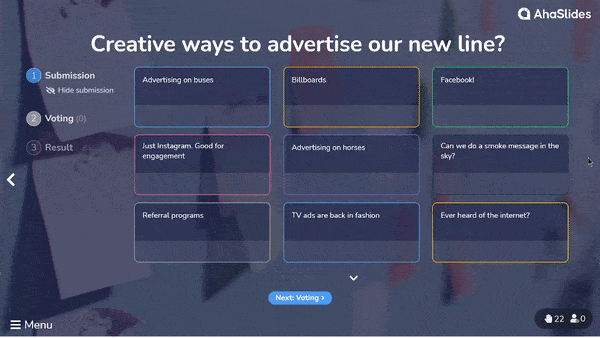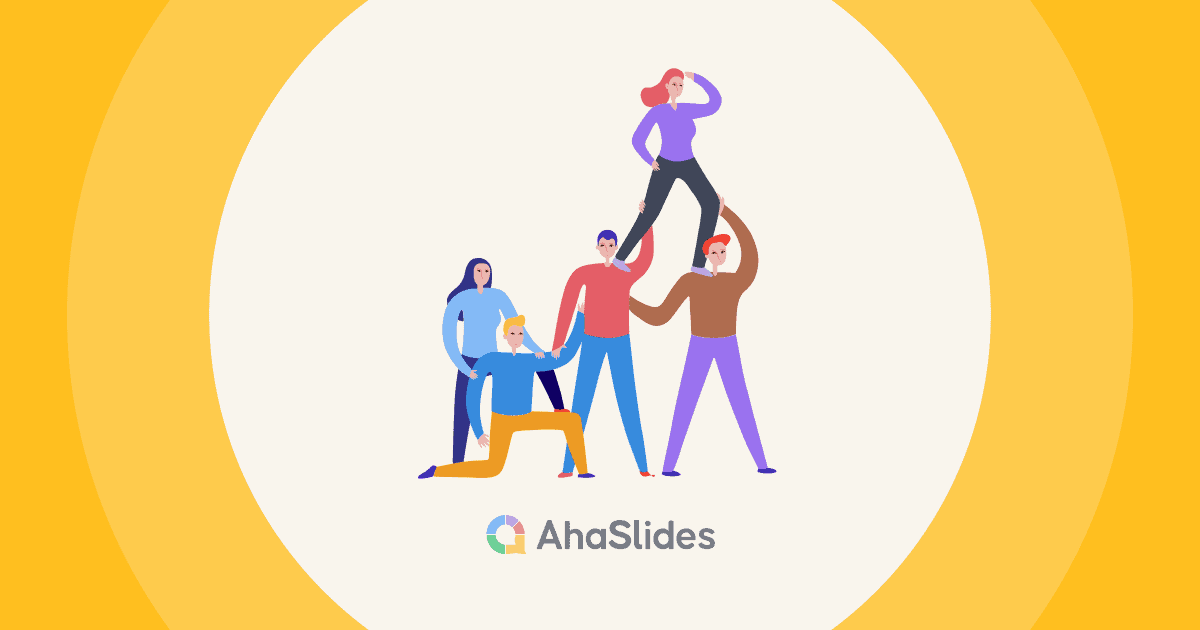Let's explore a few key findings regarding employee engagement programs, according to Gallup's recent surveys:
- Estimates 7.8 trillion in lost productivity, equal to 11% of global GDP in 2022
- Nearly 80% of employees worldwide are still not engaged or are actively disengaged at work, despite companies' efforts
- Quiet quitters are increasing, and they could make up more than 50% of workers in the U.S.
- A highly engaged workforce increases profitability by 21%.
Engaged employees promise higher retention, lower absenteeism, and better work performance. No successful business can ignore the importance of employee engagement programs. However, some companies are facing workplace engagement program failures, and there are many reasons behind it.
Let's explore the best programs to enhance employee engagement.
Table of Contents
- Overview
- Top 15 Best Employee Engagement Programs
- #1. Build Company Culture
- #2. Publicly Recognize Employee Successes
- #3. Openness Brainstorming Session
- #4. Strong Onboarding Programs
- #5. Set Up Virtual Watercooler Chats
- #6. Having Best Friends at Work
- #7. Host Team Lunches
- #8.Training and Development
- #9. Have Quick Team-building
- #10. Offer Perks
- #11. Send Employee Appreciation Gift
- #12. Welcome Employee Feedback
- #13. Emphasize Work-life Balance
- #14. Promote Taking Initiative
- #15. New Challenges
- Frequently Asked Questions
- Key Takeaways

Top 15 Best Employee Engagement Programs
For a decade, there has been a shift in key drivers of high employee engagement. Besides paychecks, they are more inclined to connect to the company goals, professional development, purpose and meaning at work, feeling cared about at work, and more. Understanding what it really means to employees can help businesses build strong employee engagement programs.
#1. Build Company Culture
Building a strong company culture can be an effective employee engagement program, as it can help create a sense of community and shared purpose among employees. Define the core values that guide your company and communicate them clearly to employees. For example, promote employee engagement sustainability programs.
#2. Publicly Recognize Employee Successes
Recognize and reward employees who demonstrate the values and behaviors that align with the company culture and excel at work. Make the recognition public by sharing it with the broader organization or even publicly on social media. This can help boost the employee's confidence and create a sense of pride within the organization.
In addition, managers can use multiple channels to enhance employee recognition and engagement, such as in-person announcements, emails, or company newsletters. This can help ensure that all employees have the opportunity to hear about and celebrate each other's successes.
#3. Openness Brainstorming Session
Openness in brainstorming sessions can increase team engagement by creating a safe and collaborative environment for sharing ideas. When employees feel free to express their thoughts and ideas without fear of criticism or judgment, they are more likely to feel valued and engaged in the brainstorming process.

#4. Strong Onboarding Programs
For new hires, a comprehensive onboarding program or introductory meetings are necessary. It estimates that about 69% of workers are more likely to stay with a company for three years if they experience a good onboarding process, as they feel more welcome and supported, as well as a stronger sense of commitment to the organization. from the very beginning.
Related: Onboarding Process Examples: 4 Steps, Best Practices, Checklists & Tool

#5. Set Up Virtual Watercooler Chats
Virtual employee engagement activities ideas? Setting up virtual water cooler chats is a great way to promote online employee engagement programs, especially in remote work environments. Virtual Watercooler chats are informal, online meetings where team members can connect and socialize with each other. These chats can help employees feel more connected to their colleagues, build relationships, and promote a sense of community within the organization.
#6. Having Best Friends at Work
Having best friends at work is a powerful employee engagement program. Employees who have close relationships with their colleagues are more likely to feel connected to the organization, be more productive, and experience higher levels of job satisfaction.
Employers can encourage these relationships by facilitating social events and team-building activities, promoting a positive and supportive work culture, and fostering open communication and collaboration among team members.

#7. Host Team Lunches
Employee engagement programs don't need to be formal; relaxing and comfortable team lunches can be an awesome activity. It provides an opportunity for team members to socialize and connect in an informal setting without pressure.
#8. Offer Highly Personalized Employee Training and Development
Up to 87% of millennials in the workplace think development is important. Offering training and development opportunities, such as leadership development programs or skill-building workshops, can help employees feel that they have opportunities for growth and career advancement within the organization.
#9. Have More Fun With Quick Team-building
33% of those shifting jobs reckon boredom is their main cause of leaving. Adding more fun to work, like team-building activities, can keep them energized. By encouraging employees to have fun and build relationships, employers can promote a sense of community and teamwork, leading to better employee morale and performance.
Related: 11+ Team Bonding Activities Never Annoy Your Co-workers
#10. Offer Perks
Perks offered can be one of the awesome employee engagement programs, as they can include a wide range of benefits such as flexible working arrangements, employee wellness engagement, employee discounts, and professional development opportunities. By offering these additional benefits, employers can show their employees that they are valued and invested in their well-being and professional growth.
#11. Send Employee Appreciation Gift
One of the effective employee engagement programs that companies can use is sending tangible gifts to appreciate employees. Employee appreciation gifts can range from small tokens of gratitude, such as handwritten notes, gift cards, or company-branded merchandise, to more significant rewards, such as incentives. It can help build a positive company culture and promote loyalty and retention among employees.
#12. Welcome Employee Feedback
Asking an Employee for Feedback is also a good employee engagement program example. When employees feel that their opinions and ideas are valued and heard, they are more likely to feel invested in their work and committed to the organization.
Creating an engaging survey won't take you too much time and effort if you try AhaSlides' customizable survey templates.

#13. Emphasize Work-life Balance
Allowing flexible working hours and promoting hybrid working models can be effective employee engagement programs. Employees can customize their work schedules to fit their personal needs and preferences and combine remotely and in the office - which can offer them more flexibility and freedom to manage their work and personal lives.
#14. Give People a Chance to Set Their Own Goals
To make employee engagement programs more successful, let's offer employees opportunities to set their own goals and objectives. When employees have a say in the goals they are working towards, they are more likely to feel invested in their work and committed to achieving those goals. Employers can facilitate this process by encouraging employees to set goals during performance reviews or through regular check-ins with managers.
#15. Set New Challenges
Can programs for employee engagement be designed as challenges? Employees who are presented with new and exciting challenges are more likely to feel motivated and energized about their work. Employers can introduce new challenges by offering stretch assignments, providing opportunities for cross-functional collaboration, or encouraging employees to pursue new skills or areas of expertise.
Frequently Asked Questions
What is employee engagement?
Employee engagement refers to the emotional connection and level of commitment an employee has towards their job, team, and organization.
What are employee engagement activities?
Employee engagement activities are initiatives or programs designed to promote employee involvement, motivation, and connection to the workplace. These activities can be formal or informal and may be organized by the employer or employees.
What are the employee engagement programs in HR?
An employee engagement program in HR aims to create a culture of engagement where employees are committed to the organization and motivated to contribute their best work. By improving employee engagement, organizations can improve productivity, increase retention rates, and foster a more positive and productive workplace environment.
What are the 5 C's of employee engagement programs?
The 5 C's of employee engagement are a framework that describes the key factors that contribute to creating a culture of engagement in the workplace. They involve Connection, Contribution, Communication, Culture, and Career.
What are the four elements of employee engagement?
The four elements of employee engagement consist of work, positive relationships, growth opportunities, and a supportive workplace.
What is an example of engagement with employees?
An example of engagement with employees could be organising a team-building activity, such as a scavenger hunt or a group volunteering event, to encourage employees to connect outside of work tasks.
Key Takeaways
These are just a few examples of employee engagement programs organizations can leverage to promote a positive and engaging working environment. However, successful employee engagement programs might also require a strong commitment from management and a willingness to invest in employee development and well-being.
Ref: Team Stage | Gallup








